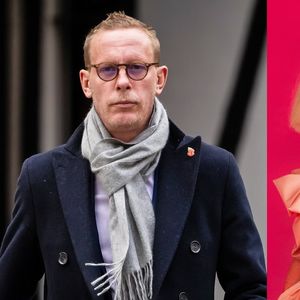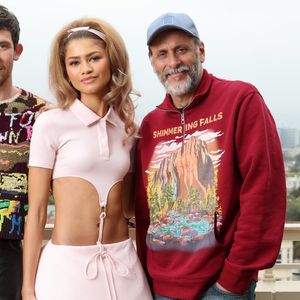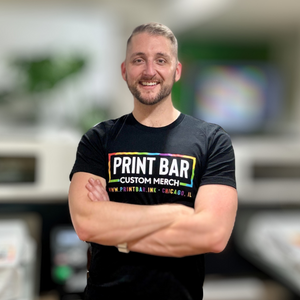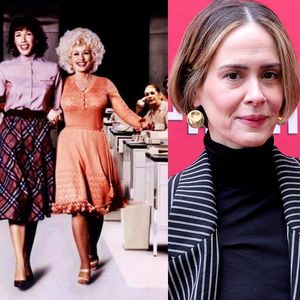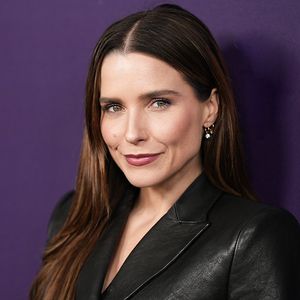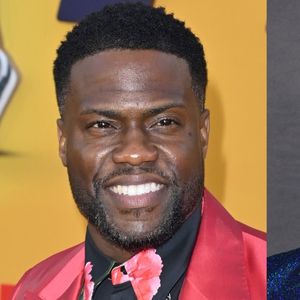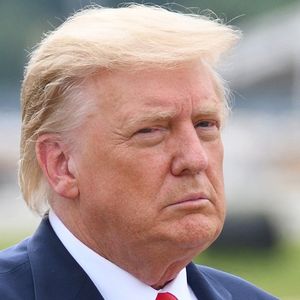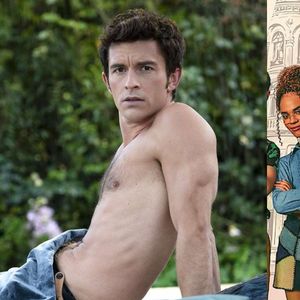CONTACTStaffCAREER OPPORTUNITIESADVERTISE WITH USPRIVACY POLICYPRIVACY PREFERENCESTERMS OF USELEGAL NOTICE
© 2024 Pride Publishing Inc.
All Rights reserved
All Rights reserved
By continuing to use our site, you agree to our Private Policy and Terms of Use.
Last night's debate marked the first time this Democratic Party presidential debate season that candidates were not asked about their positions on same-sex marriage or "don't ask, don't tell."
The eight Democratic candidates for president appeared together on stage at Howard University, an elite African-American college in Washington, D.C., on Thursday night. The event was moderated by television and radio personality Tavis Smiley and broadcast by PBS. With the Reverend Al Sharpton, entertainer and civil rights activist Harry Belafonte, and Princeton professor Cornel West in the auditorium, the debate was squarely centered on issues confronting the African-American community.
Primary topics concerned issues such as racism, poverty, and the criminal justice system, with the candidates promising to improve various social inequities. It may have been a welcome reprieve for former senator John Edwards, who had spent the week explaining that he still supports civil unions even though his wife proclaimed that she is "completely comfortable with gay marriage" last Sunday in San Francisco.
During the debate, however, Edwards made a vague reference to the Los Angeles LGBT Center he had visited earlier in the week. When the candidates were asked about containing the spread of AIDS among African-American teens, the former senator mentioned a recent visit to a "medical center in Los Angeles" that cared for AIDS patients.
Edwards was not the only candidate who shied away from mentioning the LGBT community, even within the context of a discussion on AIDS. Illinois senator Barack Obama, who is African-American, seemed the only person willing to broach the subject. Playing his favorite role as truth teller, Obama said, "One of the things we have to overcome is a stigma that still exists in our communities. We don't talk about this, we don't talk about it in our schools, sometimes we don't talk about it in our churches. It has been an aspect sometimes of our homophobia that we don't address this issue as clearly as it needs to be."
Obama only mentioned the term "AIDS" once during his one-minute answer and never uttered "HIV." He also did not offer any specifics on how he would fight the AIDS crisis in America.
With the other candidates, New Mexico governor Bill Richardson said there's a "moral imperative to fight this disease both nationally and internationally." He then added, "We have to use needles" as well as "comprehensive education" to prevent AIDS cases among African-Americans. He did not say how, why, or under what condition those needles should be used, or what kind of education--whether it is sex education or drug prevention.
Edwards spelled out a three-point plan for combating AIDS. First, he supported better funding for "finding a cure for AIDS, so we can end this scourge once and for all." Second, he wanted to fully fund the Ryan White Act and make treatment available for anyone with AIDS. Finally, he believed Medicaid should completely cover the costs of AIDS drugs and treatments.
As for the other presidential hopefuls, Ohio congressman Dennis Kucinich suggested sex education at an earlier age as well as better overall health care in America, while former senator Mike Gravel of Alaska said the true "scourge" in the African-American community was the "war on drugs." Connecticut senator Christopher Dodd offered school-based clinics for young people to talk candidly about sex education. He also mentioned better access to health care.
Then came New York senator Hillary Clinton. "Let me just put this in perspective," Clinton said. "If HIV/AIDS were the leading cause of death of white women between the ages of 25 and 34, there would be an outraged outcry in this country." The reaction among African-American women in the crowd was so loud and strong, she almost couldn't finish the sentence.
The senator continued to say she was working on Edwards's Medicaid proposal as well as increasing funding for the Ryan White Act. "The Bush administration has kept [spending] flat," said Clinton, who has been a key broker on the issue in the Senate. "Disgracefully so." The former first lady then ended her comments, saying, "If we don't begin to take [AIDS] seriously, and address it the way we did back in the '90s--when it was primarily a gay men's disease--we will never get the services and the public education that we need." Again, the New York senator's comments drew loud applause.
Delaware senator Joe Biden blamed the "white community" for not properly educating blacks about AIDS prevention. He also said there was a culture of denial among African-Americans. "The fact of the matter is, the community is engaged in denial. No one wants to talk about it in the community, and we don't have enough leaders in the community and outside the community demanding that we face the reality." As Biden finished his answer, the camera cut to the Reverend Al Sharpton for a reaction shot. He was not clapping.
The next Democratic presidential debate will take place on July 23 in Charleston, S.C. (Patrick Range McDonald, The Advocate)
Want more breaking equality news & trending entertainment stories?
Check out our NEW 24/7 streaming service: the Advocate Channel!
Download the Advocate Channel App for your mobile phone and your favorite streaming device!
From our Sponsors
Most Popular
Here Are Our 2024 Election Predictions. Will They Come True?
November 07 2023 1:46 PM
Meet all 37 of the queer women in this season's WNBA
April 17 2024 11:24 AM
17 Celebs Who Are Out & Proud of Their Trans & Nonbinary Kids
November 30 2023 10:41 AM
Here Are the 15 Most LGBTQ-Friendly Cities in the U.S.
November 01 2023 5:09 PM
Which State Is the Queerest? These Are the States With the Most LGBTQ+ People
December 11 2023 10:00 AM
These 27 Senate Hearing Room Gay Sex Jokes Are Truly Exquisite
December 17 2023 3:33 PM
10 Cheeky and Homoerotic Photos From Bob Mizer's Nude Films
November 18 2023 10:05 PM
42 Flaming Hot Photos From 2024's Australian Firefighters Calendar
November 10 2023 6:08 PM
These Are the 5 States With the Smallest Percentage of LGBTQ+ People
December 13 2023 9:15 AM
Here are the 15 gayest travel destinations in the world: report
March 26 2024 9:23 AM
Watch Now: The Daily
Trending stories from our video partner Advocate Channel.
For more videos and shows go to advocatechannel.com.
Trending stories from our video partner Advocate Channel.
For more videos and shows go to advocatechannel.com.
Latest Stories
How a lesbian's triumph on the Portland Timbers billboard broke barriers
April 24 2024 4:52 PM
‘Faces of Gun Violence’ exhibit unveiled at inaugural survivors’ summit
April 24 2024 4:46 PM
Trans woman Andrea Doria Dos Passos beaten to death in Miami Beach; arrest made
April 24 2024 4:36 PM
TikTok may be banned in the U.S. after Biden signs new law — Why?
April 24 2024 3:43 PM
Serial killer of gay men in New Orleans released after 46 years in prison
April 24 2024 2:16 PM
The 'largest bi+ event in the world' is happening this year. Here's when and where
April 24 2024 12:42 PM
What happens if Donald Trump is jailed for criminal contempt?
April 24 2024 12:22 PM
Megan Rapinoe, Sue Bird, and more urge NCAA to stand up for trans inclusion
April 24 2024 8:00 AM
Over 90% of trans youth live in states pushing anti-trans legislation: report
April 23 2024 10:08 PM
Trending stories
Most Recent
Recommended Stories for You





































